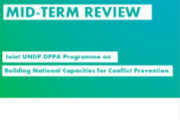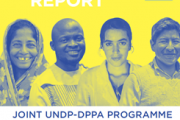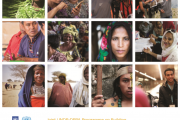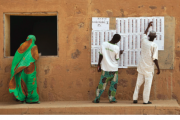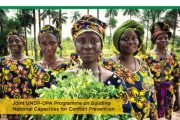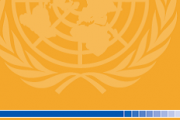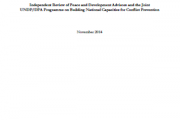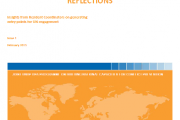Peace and Development Advisors
Strengthening dialogue, mediation and national peace architectures
Whether focusing on engagement with national stakeholders or supporting internal UN engagements, competencies in dialogue, mediation, and facilitation are central to the PDA cadre. PDAs support dialogue and mediation efforts in many countries in which they are deployed. They work with national and local stakeholders to develop a common understanding of problems and help resolve them.
These dialogue processes take place at national or sub-national levels, bringing together government and civil society actors, including key stakeholder groups such as youth, traditional leaders, women, and faith-based organizations, as appropriate. They often begin before conflict escalates, with the aim of supporting national actors to find consensus-based solutions, transform conflict dynamics, and ultimately prevent the risk of violent conflict from emerging or recurring.
PDAs often engage in helping countries develop national infrastructures for peace that are effective for their contexts. Such structures can incorporate local peace committees and connect them to the formal national institutions or high-level political processes. In other countries, national peace architectures are embedded within the state institutions and linked to the Presidency of the country, and in other places these structures operate outside of the formal national institutions.
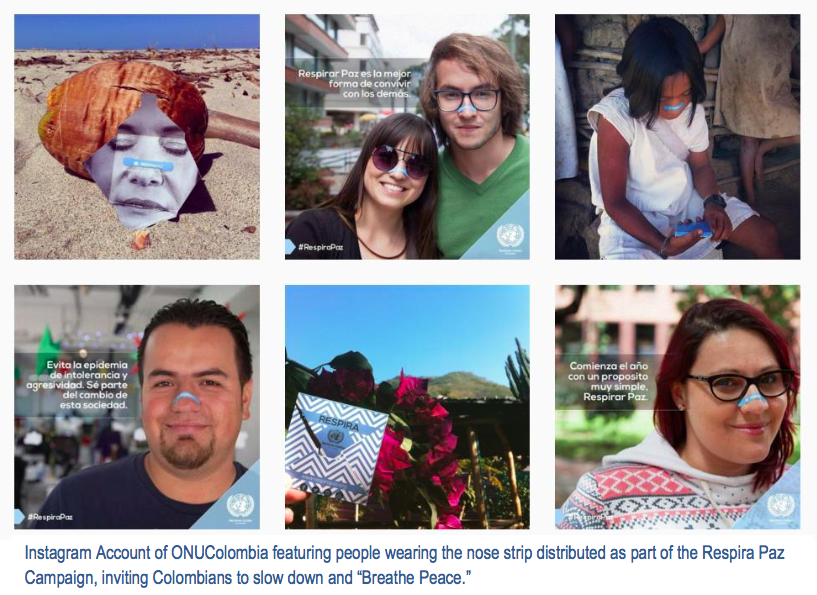
Bosnia and Herzegovina
In Bosnia and Herzegovina, the Peace and Development Unit (PDU) capacitated young leaders to strengthen their skills as insider mediators. A joint analysis on youth perceptions on socio-economic issues spearheaded by the PDU led to the development of activities aimed at fostering dialogue. Recognizing the potential of youth and independent online media voices as agents of change, the PDU supported the establishment of a small grants facility for online media outlets and individuals to counter inflammatory and negative narratives, and promote inter-cultural understanding. So far, over 150,000 people have been reached via online channels. In addition, a youth-led regional forum was given support so that it could bring together 130 regional participants to engage in political skill-building, foster stronger cooperation and establish a regional network of young critical thinkers who would be able to recognize and address conflict drivers in their communities.
Colombia
In Colombia, throughout 2015, the PDA supported the Resident and Humanitarian Coordinator to encourage continued commitment to the peace negotiations and serving as the primary voice of the UN system across a range of related peace, development, and humanitarian issues. The PDA assisted in the coordination of inter-agency efforts to provide concrete support to the negotiations and the preparations for post-conflict development. The PDA also led the UN's public communication on peace and development issues and strategies, leading the implementation of the UN Peacebuilding Fund-supported inter-agency communications campaign "Respirapaz." Respira Paz ("breath peace") was carried out during 2014-2015 intended to increase public support for peace negotiations in a context of polarization around the peace process.. The campaign was aimed especially at influencing Colombians who are indifferent or skeptical about peace; it also sought also to target young people and women.
Nigeria
In Nigeria, the PDA provides critical support to national efforts to establish an infrastructure for peace. This primarily took the form of facilitating the implementation of a Strategic Conflict Assessment (SCA) for Nigeria to identify and understand the key threats to peace and security in the country, and make recommendations to strengthen the capacities of institutions and communities, including women, youth and interfaith groups to address these issues peacefully. The assessment was conducted by the National Institute for Peace and Conflict Resolution, a partner of the UN-led peacebuilding programme, in the six geo-political zones of Nigeria to bring to the fore sub-national dimensions of the state of peace and security. The conclusions of the assessment inform ongoing national efforts to establish a National Commission for Peace, Reconciliation and Mediation, in addition to feeding into the new UN partnership framework for Nigeria (UNDAF IV), 2018-2021. A draft bill to create this commission is being considered in the National Assembly, and its passage would provide Nigeria with a legal basis as well as a mandated institution to prevent, mitigate and resolve violent conflicts throughout the country. The UN, under the leadership of the PDA, is providing technical support to the legislative process to ensure it is informed by inputs from women and men and youth from different parts of the country. The bill is expected to be ratified into law in 2017.
Ukraine
In Ukraine, the Peace and Development Unit (a PDA and Peace and Development Specialist seconded by Folke Bernadotte Academy) supported an innovative grassroots dialogue initiative. The Donbass Dialogue platform serves as an online channel of communication between communities divided by conflict. The secured online platform enables users to discuss self-selected topics, with a crowd-sourcing process to help identify issues of mutual interest. Despite the limited space for engagement, support has consisted of providing assistance for holding dialogue events and other capacity-building support. The initiative helped to sustain contact between divided communities on both sides of the line of contact in the east of Ukraine.

